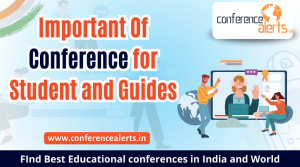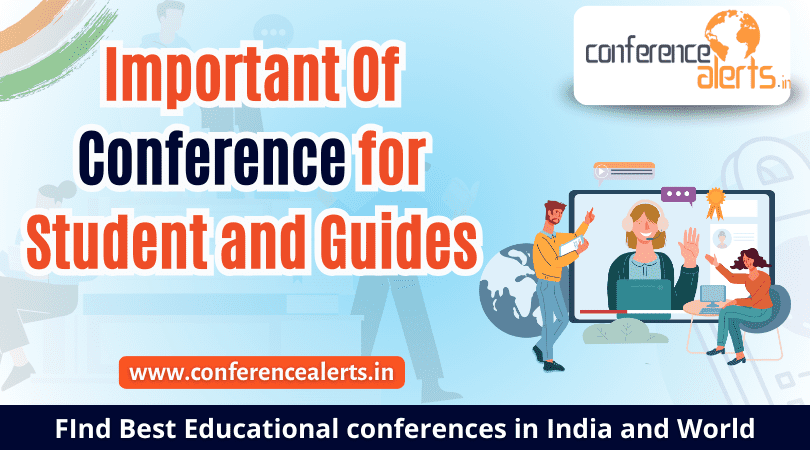Conferences are important for both students and their guides (mentors, professors, or advisors) for several reasons: Here in this post you will get the details of the Important Of Conference for Student and Guides
Important Of Conference for Student and Guides

For Students:
Knowledge Expansion: Conferences provide a platform to learn about the latest research, trends, and developments in their field of study. Attending presentations and workshops can significantly enhance a student’s knowledge base.
Networking: Conferences offer opportunities to connect with peers, experts, and professionals in the field. Networking can lead to collaborations, job opportunities, and valuable mentorship.
Presentation Skills: Presenting research or projects at conferences helps students improve their public speaking and communication skills. It’s a chance to receive feedback and gain confidence in presenting their work.
Feedback and Critique: Students can receive constructive criticism and feedback on their research or projects from experts in the field, helping them refine their work.
Inspiration: Hearing from accomplished speakers and witnessing groundbreaking research can be inspirational for students. It can motivate them to pursue their studies with greater enthusiasm.
Exposure to Diverse Ideas: Conferences often feature a wide range of topics and perspectives. This exposure encourages students to think critically and consider new approaches to their work.
Resume Building: Conference attendance and presentation look impressive on a student’s resume. It demonstrates a commitment to professional development and engagement in their field.
Scopus indexed conferences in India 2024
For Guides (Mentors/Professors/Advisors):
Mentoring Opportunities: Conferences provide mentors with the chance to guide and advise their students in a real-world, professional context. They can help students navigate the conference, network effectively, and present their work.
Professional Development: Attending conferences keeps mentors up-to-date with the latest research and trends in their field. This knowledge can enhance their teaching and research.
Networking: Conferences allow mentors to connect with colleagues, potentially leading to collaborative research opportunities and partnerships.
Recognition: Mentors can showcase their students’ work and achievements at conferences, which can reflect positively on both the students and the mentors.
Inspiration and Collaboration: Mentors often find inspiration and ideas from other presentations at conferences. They may also identify potential collaborators for future research projects.
Supporting Student Growth: By encouraging and facilitating students’ conference attendance and presentations, mentors help students grow academically and professionally.
Upcoming Conference Alerts in Engineering
Final words
In summary, conferences play a crucial role in the academic and professional development of students and guides alike. They provide a platform for learning, networking, skill development, and exposure to new ideas, ultimately contributing to the growth and success of individuals in their respective fields.
Reference read: 6 reasons why students should attend conferences



